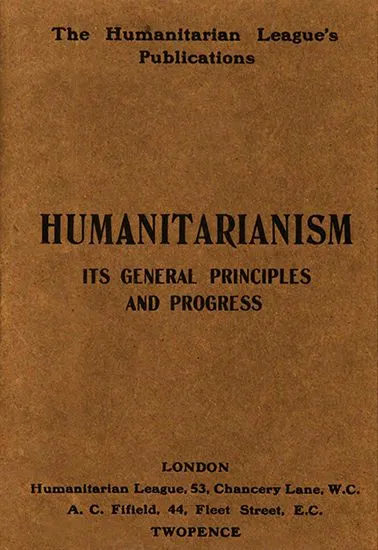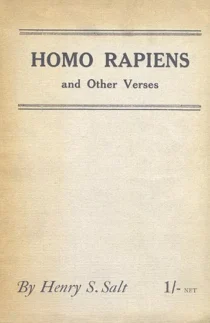
Humanitarianism: Its General Principles and Progress
Henry S. Salt
- Edition: First Edition
- Publisher: Reeves and Turner, London
- Published: 1891
- Length: 27 pages
- Reprints: 1891
- Second Edition
- 1893 Reeves and Turner, London, 27 pages
- Second Edition Reprint
- 1906 The Humanitarian League, London, 27 pages
- Reprint
- 1926 Watts & Co., London
Summary
In Humanitarianism: Its General Principles and Progress, Henry S. Salt explores the rich ethical doctrine of humanitarianism, tracing its development from the mid-18th to late 19th century. Salt defines humanitarianism as a vital system that prioritises the instinct of humaneness within ethics, advocating for a compassionate approach to both human and animal welfare.
This illuminating work argues that modern humanitarianism extends beyond mere philanthropy towards humans, embracing zoophily—an inherent concern for animals. Salt highlights that the goal of humanitarianism is not the pursuit of unattainable perfection but rather the prevention of unnecessary suffering for all sentient beings. He distinguishes between old and new humanitarianism, illustrating how the latter reflects a deeper understanding of economic conditions and social science, positioning it as a catalyst for social reform.
Salt’s insights into the principles and activities of the Humanitarian League reveal a commitment to asserting and applying the tenets of humaneness broadly. He defends humanitarianism against accusations of sentimentalism, presenting it as a rational and practical ethical framework. This thought-provoking essay serves as an essential guide for anyone seeking to understand the vital role of humanitarianism in fostering social progress and enriching human-animal relations. A compelling read for those passionate about ethics, social reform, and compassionate living.
Reprinted from the Westminster Review and also the Humanitarian League’s Publications. No. 1. 1891




